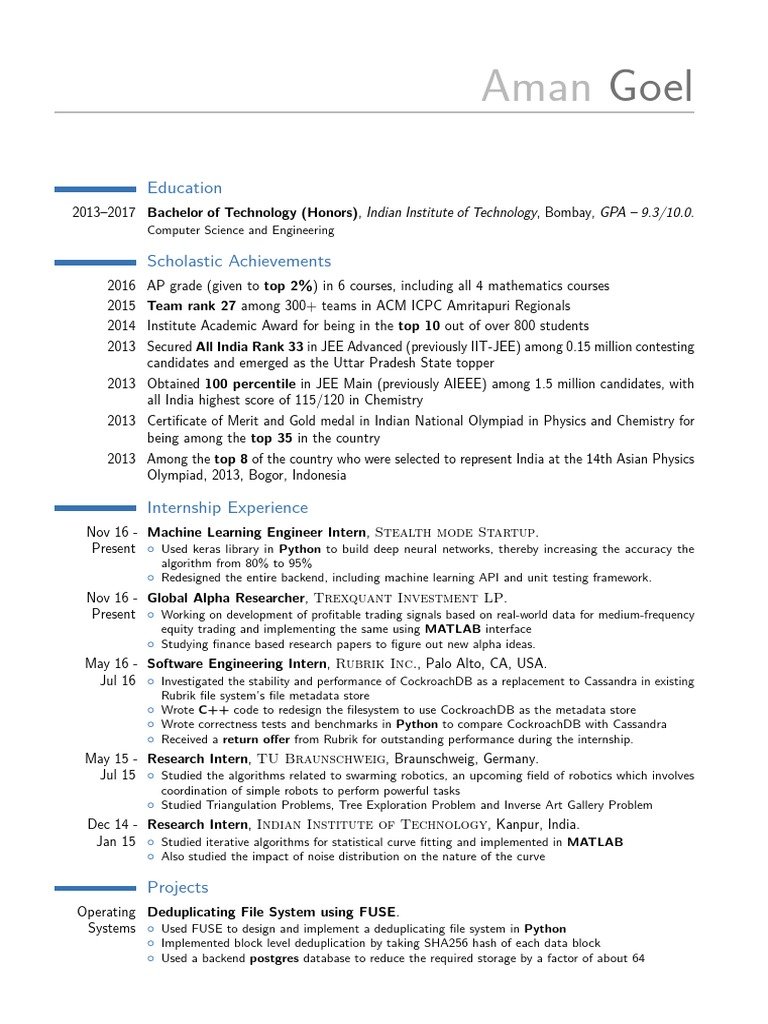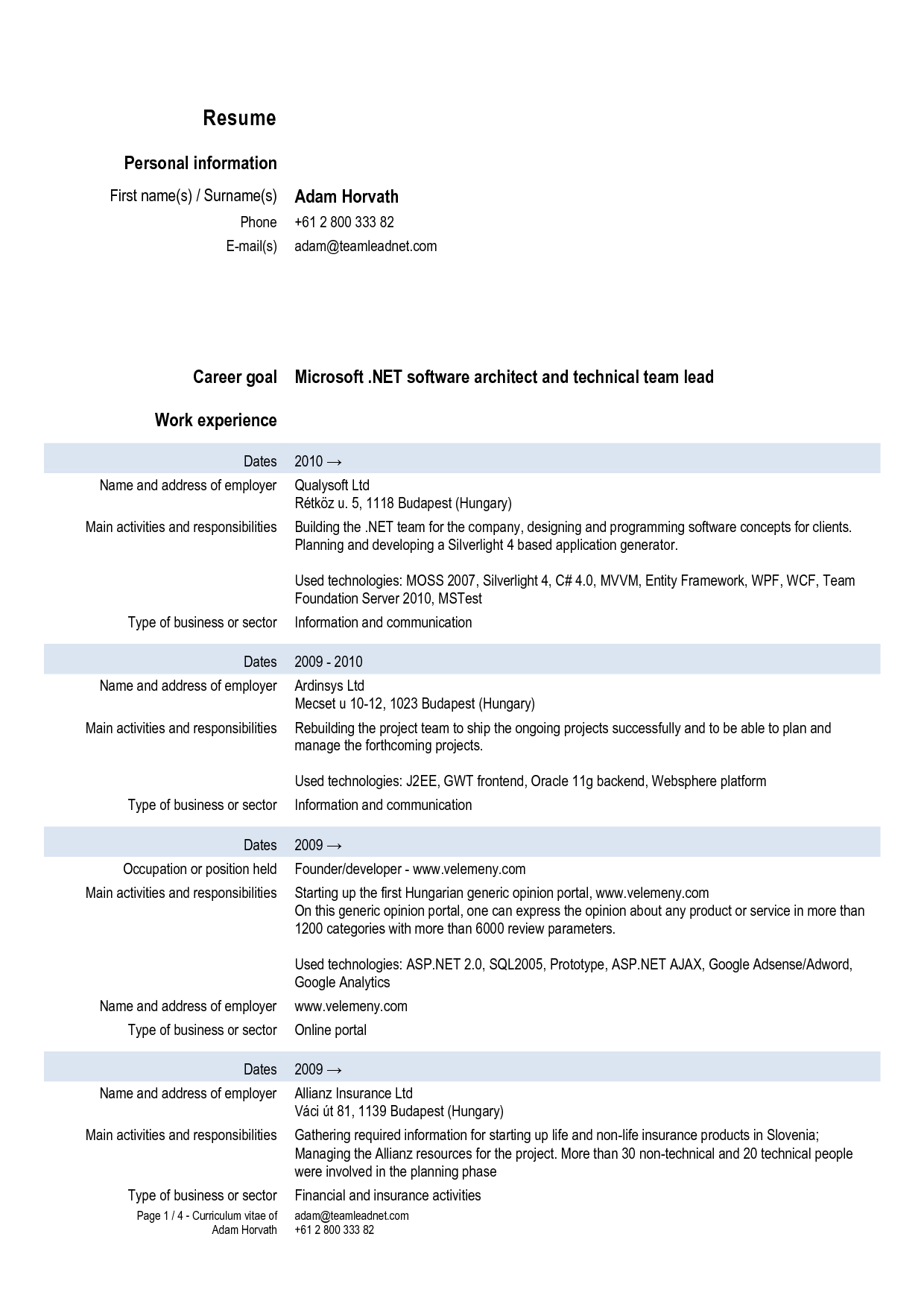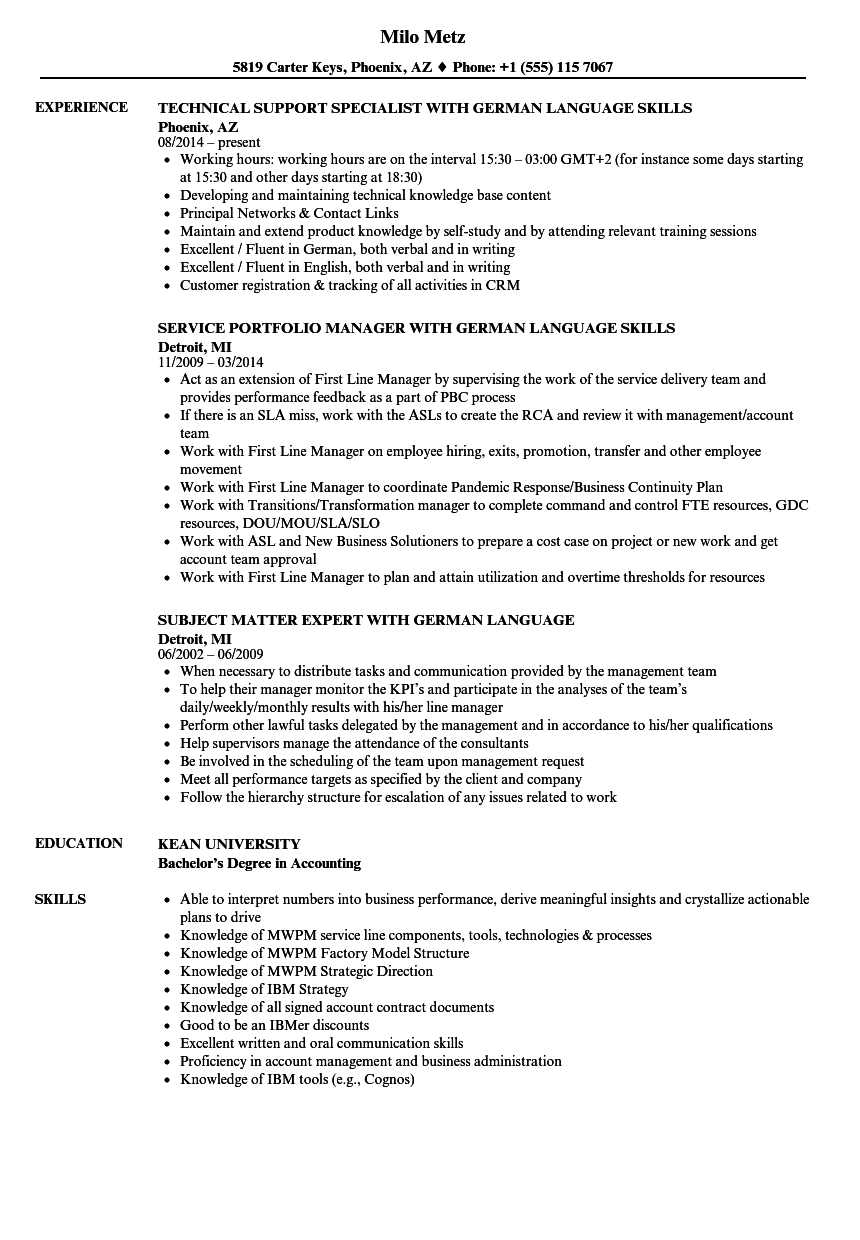The Language Is Extremely Difficult To Learn
If the language you know is extremely difficult to learn and, therefore, few people in your area know it, you may want to include it on your resume. Whether or not it’s relevant to your industry, job or the company at all, it shows that you’re a hard worker and have dedicated your time to learning a skill that’s not easy.
Using Infographic And Visual Representations
It can be very helpful to use an Infographic representation for your language abilities, especially when the overall design of the resume following the same act.
How Many Points to Represent Language Proficiency?
When using Infographic, that can be represented by points like the picture shows, the number of points are decided upon the classification that you chose before. If it was 4 levels; then you can use 4 points or its multiples for infographic representation.
How Report Is Written
Report Writing
Read Also: Is It Ok For A Resume To Be 2 Pages
How To Write Foreign Language Skills On Your Resume
Once youve worked out where youre going to put them, you need to know how to write language skills in a resume: Chinese, German, French or Spanish. What is your level? Are you fluent? Is your level intermediate?
How to write resume foreign language skills: There are lots of different scales and ways of measuring language ability. Unless the language ability is central to the job, you should just describe your level with one or two words.
Putting language proficiency on your resume: You can write something like basic, fluent or native or if you have a clearer idea of your level here is a scale of language ability:
Being fluent in a language is defined in a variety of ways, but essentially it means you can have a fluid and accurate conversation in that language.
Proficiency in a language means you understand it well, but may use it more formally or less easily than a fluent speaker.
If youre at an intermediate level, you can have basic conversations in a variety of situations but still make your fair share of mistakes. Dont bother including anything below this level on your resume.
Here is a basic level guide:
- Beginner
Alternatively you can use the scale which LinkedIn uses:
- Elementary proficiency
- Limited working proficiency
- Full professional proficiency
- Native or bilingual proficiency
Should I Put Languages On My Resume

The number one consideration on whether to include a resume language skills section is relevancy. Is the language a job requirement? Is the ability to speak the language of value to the company?
If the language is relevant to the position youre applying for it should definitely be included, and highlighted. If not, it should be included though it shouldnt be given too much prominence.
When writing a resume, space is precious, every part should help to sell yourself to the company. If you doubt whether something is relevant, the chances are it isnt.
English is the most important international language to speak. Most recruiters and employers expect their employees to be able to hold a conversation in English.
However, the fact that your resume is in English will highlight this. In the US, it can also be highly valuable to speak Spanish. If youre writing a student resume, extra languages look good, and will help you to fill the space.
Also Check: What Happens If You Lie On Your Resume
Do An Administered Or Self
Depending on your level of skill and what the job requirements are, you should have some kind of objective gauge of your skill level.
The American Council on the Teaching for Foreign Languages offers proctored exams resulting in a recognized certification. This test is used by Fortune 500 companies and government agencies, so whatever certification you get will be widely recognized. This test and certification doesnt come cheap, however.
If resources are an issue, you can do a self-assessment through the Interagency Language Roundtable , a service set up among U.S. federal government agencies to keep abreast of the progress and implementation of techniques and technology for language learning, language use, language testing and other language related activities.
The site hosts three test forms, one for spoken proficiency, reading proficiency and listening/comprehension proficiency:
This will let you list your language skill level with a precision many other candidates probably wont bother to the tests generate standardized designations 0-5 with a + added if youre in between skill level tiers.
Why Are Language Skills Important
Communication is a critical part of any job, and depending on the role, you may need to communicate with colleagues, managers or customers. Recruiters often look for language skills because they show your ability to communicate with a diverse range of people. They also show hard work and dedication to learning something new and challenging.
Knowing a second language shows cultural knowledge, which is an important tool to have since businesses are globalizing across all industries. Already knowing the language of a country that your prospective employer works in can help your resume stand out. Besides being able to communicate with their international partners, you may also know their cultural customs and be able to interact with them in a culturally appropriate manner.;
Language skills can help advance your career in several ways. You can build relationships directly with the employers international contacts without going through a translator. As individuals and families mobilize to new countries, small domestic employers will benefit from being able to communicate directly with their clients. Regardless of the languages you speak or your professional industry, language skills can help grow your professional network, allow for more job opportunities and show your;soft skills.
Related:;Common Communication Barriers
Read Also: Is It Ok For A Resume To Be 2 Pages
How To List Proficiency Level
Listing a foreign language without proficiency level is too vague. If the language skill is important, provide a descriptor to define how well you can speak, read or write in the language. Use the U.S. Department of State’s language proficiency definitions to determine whether your proficiency is elementary, limited working, minimum professional, full professional or native/bilingual. The Common European Framework of Reference and the American Council on the Teaching of Foreign Languages also offer well established frameworks for referencing language proficiency.
Make Sure Your Resume Follows Industry Standards
Of course, crafting your resume is an art, not a science, and there are millions of how-to articles and Microsoft Word templates out there. Read the job descriptions youre applying for carefully and research the resume conventions for your particular industry before applying if you want the best results.
For instance, in some sectors, resumes more than a page long go directly in the trash, where in others, a one-page resume is evidence of anemic professional experience.
For more information on how to craft your resume, GFCGlobal is a free educational resource with tutorials on this, business software programs and other career education resources.
Read Also: How To Describe Foreign Language Skills On Resume
How Do You Put Languages On A Resume
Here are three simple ways to include your language skills on your resume.
1. Create a language section.
Create a section on your resume that’s specifically for your language skills. This would be separate from your experiences section and your education section. It could come before or after your skills, but make sure that, if your language skills could seriously impact hiring decisions, you make them as visible as possible on your resume.
2. List your language use in a job description.
If you’ve had to use your language skills for previous jobs, work that into those job descriptions. For example, if you worked as a travel agent, you might mention in your job description that you used your Spanish to help clients book their travel plans or to work with venues and partners in Spanish-speaking countries.
3. Introduce yourself as bi- or multi-lingual.
If you include a statement at the top of your resume, you can introduce yourself as a bi- or multi-lingual professional in that opening line. This works well if you want to highlight your language skills immediately .
Create A Master List Of Your Computer Skills
Go through each category and create a master list of each and every computer skill you have in your toolbox. When creating your master list, write every skill, no matter how obvious it may seem. Although some computer skills might seem obvious given your profession, many hiring managers still want to see these skills listed.
The important thing is to never write a computer skill that you arent comfortable with. If you include it, hiring managers will expect you can deliver. If you are ever worried about a hiring manager over or underestimating your level of proficiency, add fundamental, basic, intermediate, or advanced in parentheses next to the skill listed.
Job post example :
Recommended Reading: How To Mention Typing Skill In Resume
How To List Resume Language Skills
Once you establish your language comprehension levels, you are ready to list your skills on your resume. Besides a section for language skills, you may also highlight them at the top of your resume in your;summary.;
If the language skills are critical for the job you are applying for, such as a Certified Nursing Assistant, you might begin your summary with Bilingual CNA with 7 years of experience in a hospital setting. This will draw immediate attention to your language skills, then the employer can review your languages or skills section for further details.
Here are three steps to follow to add language skills to your resume:
Why Employers Want To See Language Skills On Your Resume

Employers and recruiters;most often want to see language skills on a resume when the position being applied for specifically calls for fluency in another language. For example, companies that are located in an area where multiple languages are spoken or that work on a global scale will often look for employees;with fluency in a certain language in addition to their native language.;
Possessing the ability to speak another language provides you with an important skill and often sets you apart from candidates who cannot speak another language. Its important to note that knowing only a few words or phrases in another language is typically not enough to include the language on your resume as a skill.;
Recommended Reading: High School Awards On Resume
When To Include Language Skills On A Resume
As you prepare a new resume for an employer, consider how the additional languages you speak will apply to the business. If they are listed as a job requirement for the position, then highlight your language skills prominently on your resume. Even if not required, you can always list languages in the skills section of your resume.
If language requirements are not explicitly listed in the job description, research the company location and where they conduct business internationally. For example, a business that works with Chinese agencies might benefit from someone familiar with Mandarin and Chinese cultural customs. If the role involves working with members of the public, language skills are beneficial to include on your resume.
Related:6 Universal Rules for Resume Writing
Demonstrate How You Used It In A Past Position
If a job requires multi-language skills, then demonstrate how the language skill was utilized in a previous or current position. If it is not a requirement, you should still list the language in your summary of skills. Definitely make sure it is mentioned in your cover letter as well!
Sonja Talley, Principal HR Consultant
Read Also: Update Resume In Linkedin
Jobs With European Companies
Most Europeans begin learning a second language early in their primary education. If you hope to work abroad for EU employers, a solid command of a second language may well be required.;
A good way to learn which languages are required in order to work overseas is to scan the listings on one of these best international job search engine sites.
Required proficiency framework: Employers in the EU use the Common European Framework of Reference for Languages; to determine their job candidates degree of language proficiency. A basic understanding of a language is ranked as A1 or A2 , an intermediate command is scored as B1 or B2 , and advanced competency is described as C1 or C2 .;
Heres what a citation looks like:
- Foreign Languages:;English ; German ; French
Why Is It Important To Add Language Skills In Cv
As a job seeker, you want to inform potential employers about your level of language proficiency for several important reasons:;
- Your language skills are needed in the job;
- You want to make yourself a more desirable candidate
- You want to show that youre a quick learner;
- Your knowledge can be an asset to the companys future growth;
When you add language skill levels on CV, their relevancy must be evident to the recruiter. Your goal is to show that you can add value to the company as a future bilingual or multilingual employee. These are good skills to have on a resume because they show you hold the ability to communicate more effectively in contexts when other people would find obstacles -;according to Charles Vallena, CEO for Cuppabean.;In business terms, this means better contacts and relations and thus better opportunities in a globalized world.;
Don’t Miss: Writing An Acting Resume
Your Language Skills Won’t Help You Do Your Job
If your language skills aren’t going to help you do your specific job, it may not be worth wasting space on your resume talking about them. If you work in IT or accounting, for examples, your French language skills probably won’t matter. Unless your team is based in France or you have a lot of French colleagues, the chances that you’ll actually need to use your French are slim to none.
Honesty: Still The Best Policy
The importance of being honest when describing your language proficiency cannot be stressed enough. Its a skill that cannot be faked, and you will get caught if you exaggerate your proficiency level. Getting caught in a lie would almost certainly hurt your prospects of getting the job, so just be honest.
You May Like: What Your Resume Should Look Like In 2020
What Does Language Proficiency Mean
Language proficiency is your ability to speak or perform in an acquired language. There are different levels of language proficiency. Your level will determine the value of your skill with the company.
You should first assess your level of proficiency so you can accurately present it in your resume. Here are common terms used to describe language proficiency levels:
Once youve assessed your language proficiency, how should you indicate this on your resume?
Where To Put Language Skills On A Resume

A well-written resume should be tailored for each job application. The skills should match the job description, and each skill should be given prominence according to how important it is for the position. Resume language skills are no different.
With this in mind, you need to choose a place for putting languages on a resume. The most common choice is to feature them in your skills section. If you only speak one or two languages, and it isnt directly important to the job, this is the most logical choice.
Unless you are applying for a job in IT, you can also put your computer skills in the same section under a general core competencies heading.
Another option, if you have a language qualification, is to list it under your education section.
If youre applying for a job for which language skills are highly important, such as a translator or hospitality worker, you should choose a resume format which highlights them.
You should have a specific languages section which gives more detailed information on your ability. It could be a subsection of your skills, or a separate section, whichever fits better.
You can also mention it in your personal details section if you have one, and if its a must-have skill for the vacancy, you can plug it in your resume objective.
You should also include a separate languages section if you speak enough languages to warrant doing so.
You May Like: Is It Ok For A Resume To Be 2 Pages
Examples Of Language Skills On Resume
As they say, one example is often worth a thousand explanations! Because of that, let me give you a couple of examples you can use as an inspiration for the language skills section on your own resume.;
ILR language skills resume example 1
- American English Level 4+
- Chilean Spanish Level 3+
- Russian Level 3
ILR language skills resume example 2 / LinkedIn language skills
- English Full Professional Proficiency
- French Native
ACTFL language skills resume example
- American English Distinguished ;
- Spanish Full Professional Proficiency
- Japanese Advanced High